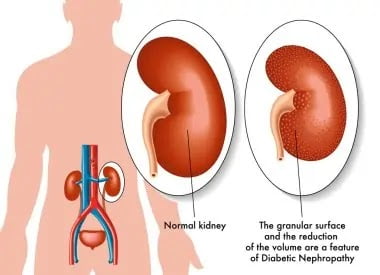
Cancer is an ever-looming threat to our well-being, affecting millions of people worldwide. While some risk factors are beyond our control, there are proactive steps we can take to reduce our chances of developing this devastating disease. By making certain lifestyle changes, we can empower ourselves to ward off cancer and lead healthier lives. In this article, we will explore the top 10 pioneering lifestyle adjustments for optimal health.
1. Adopting a Nutrient-Rich Diet
The food we consume has a significant impact on our health, including our susceptibility to cancer. A nutrient-rich diet plays a crucial role in cancer prevention. It is essential to maintain a well-balanced eating pattern, comprising a variety of fruits, vegetables, and whole grains. These natural powerhouses are packed with vitamins, minerals, and antioxidants that help strengthen our immune system and protect our cells from damage. Limiting processed food and sugar intake is equally important, as they offer little nutritional value and increase the risk of developing certain types of cancer.
2. Regular Physical Activity
Engaging in regular physical activity is not just beneficial for shedding those extra pounds; it also helps prevent cancer. Exercise has been shown to reduce the risk of various cancers, including breast, colon, and lung cancer. Find activities that you genuinely enjoy, be it dancing, cycling, or simply taking brisk walks in nature. Aim for at least 150 minutes of moderate aerobic exercise or 75 minutes of vigorous activity each week to reap the cancer-fighting benefits of physical activity.
3. Maintaining a Healthy Weight
Obesity has been linked to an increased risk of developing several types of cancer, such as breast, colon, and kidney cancer. By maintaining a healthy weight, we can reduce the likelihood of experiencing these health complications. Combining a nutrient-rich diet with regular exercise is an effective strategy for both weight management and cancer prevention. Additionally, pay attention to portion sizes and make conscious choices to fuel your body with foods that promote overall well-being.
4. Avoiding Tobacco and Alcohol
It comes as no surprise that tobacco and alcohol are two of the most notorious culprits when it comes to cancer risk. Smoking is directly linked to several cancers, including lung, throat, and bladder cancer. Alcohol, on the other hand, can contribute to the development of various cancers, including those affecting the liver, mouth, and breast. Quitting smoking and reducing alcohol consumption can significantly lower your cancer risk. Seek support and explore available resources to help you overcome these habits and make positive changes.
5. Protecting Yourself from the Sun
The sun’s ultraviolet (UV) rays can be harmful, increasing the likelihood of skin cancer. Protecting your skin from excessive sun exposure is vital for cancer prevention. Make it a habit to wear sunscreen with a high sun protection factor (SPF), cover exposed skin with protective clothing, and seek shade during peak hours when the sun’s rays are strongest. These simple precautions can go a long way in safeguarding your skin health.
6. Staying Hydrated
Drinking enough water is often overlooked but plays a crucial role in maintaining good health and preventing cancer. Staying hydrated aids digestion flushes out toxins, and ensures the proper functioning of all bodily systems. Opt for water instead of sugary drinks, which have been associated with an increased risk of certain cancers. Keep a reusable water bottle with you as a reminder to stay hydrated throughout the day.
7. Managing Stress
Chronic stress can take a toll on our physical and mental well-being. It also contributes to cancer risks. When we are constantly under stress, our immune system may weaken, making us more susceptible to illnesses, including cancer. Engage in stress-reducing activities such as meditation, yoga, or spending time in nature. Find what works best for you and make stress management a priority in your life.
8. Getting Enough Sleep
Sleep holds incredible restorative powers and is closely tied to our overall health. By ensuring an adequate amount of quality sleep, we can bolster our immune system and give our bodies the chance to repair damaged cells. Aim for 7 to 8 hours of uninterrupted sleep each night. Establish a nighttime routine that promotes relaxation and creates an optimal sleep environment for rejuvenation.
9. Regular Cancer Check-ups
Prevention is key when it comes to cancer. Regular cancer check-ups and screenings allow for early detection and intervention, increasing the chances of successful treatment. Attend routine examinations recommended for your age and gender, such as mammograms, Pap smears, and colonoscopies. By taking proactive measures and staying informed about your health, you can stay one step ahead of potential cancer risks.
10. Limiting Exposure to Environmental Toxins
In our daily lives, we may encounter various environmental toxins that can increase cancer risks. These toxins can be found in common household products, cosmetics, or even the air we breathe. Take steps to minimize exposure by choosing natural, eco-friendly alternatives, limiting the use of harmful chemicals, and maintaining good indoor air quality. Being aware of potential toxins and taking preventative measures can significantly reduce your cancer risk.
By incorporating these ten lifestyle changes into your daily routine, you can proactively reduce your chances of developing cancer and promote overall well-being. Making these adjustments may require effort, but the long-term benefits far outweigh the challenges. Take control of your health today and embark on a cancer-preventive journey.
Conclusion
Preventing cancer involves a holistic approach that encompasses various lifestyle changes. By adopting a nutrient-rich diet, engaging in regular physical activity, maintaining a healthy weight, avoiding tobacco and alcohol, protecting yourself from the sun, staying hydrated, managing stress, getting enough sleep, attending regular health check-ups, limiting exposure to environmental toxins, and nurturing strong relationships, you can dramatically reduce your cancer risk. Be proactive, be mindful, and prioritize your health – let these lifestyle changes become an integral part of your journey towards a healthier and happier life.
FAQs
1. Can lifestyle changes completely prevent cancer?
While lifestyle changes can significantly reduce the risk of developing cancer, they cannot guarantee complete prevention. Genetic factors, environmental exposures, and other unknown variables can still contribute to the development of cancer.
2. How long does it take to see the effects of lifestyle changes in cancer prevention?
The effects of lifestyle changes can vary among individuals. Adopting a healthy lifestyle is a long-term commitment, and it may take months or years to see the full benefits. However, every positive change you make contributes to your overall well-being and reduces your cancer risk.
3. Are there any specific foods that have been shown to prevent cancer?
While no single food can guarantee cancer prevention, several studies suggest that certain foods, such as cruciferous vegetables (e.g., broccoli, cauliflower), berries, and green tea, possess cancer-fighting properties. Incorporating these into your diet can be beneficial.
4. Is it necessary to eliminate all processed meat from the diet?
Eliminating processed meat entirely from your diet is not necessary. However, a high intake of processed meat has been associated with an increased risk of cancer. It is advisable to limit consumption and choose alternatives like lean poultry, fish, or plant-based protein sources.
5. At what age should I start getting regular health check-ups for cancer prevention?
The recommended age for regular health check-ups for cancer prevention may vary depending on various factors, including your gender, family history, and overall health. Consult with your healthcare provider who can assess your specific risk factors and provide appropriate guidance on when to start regular screenings.


